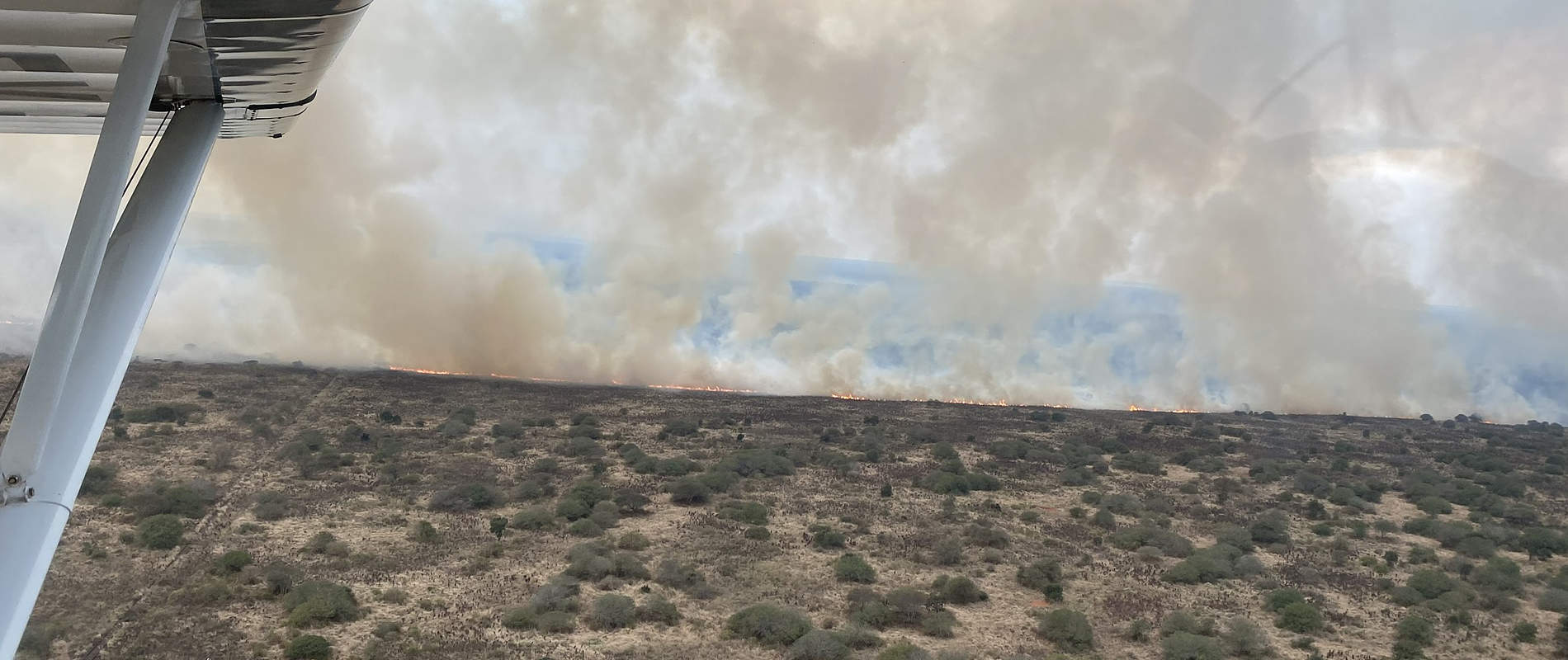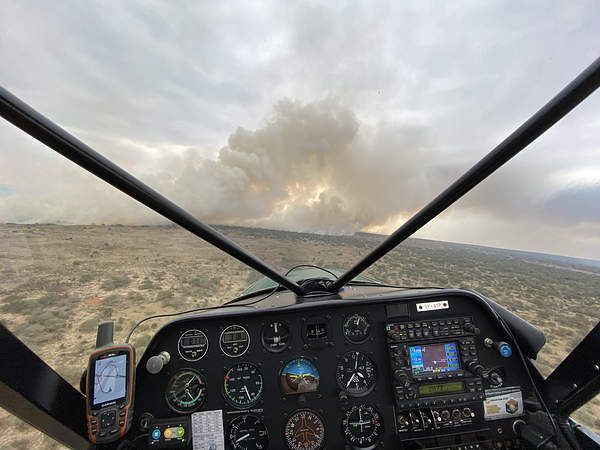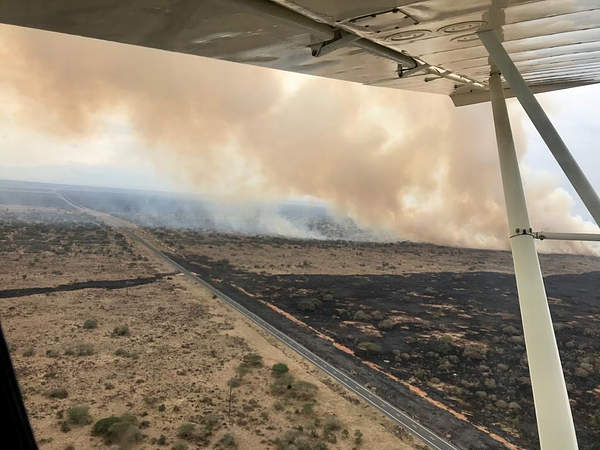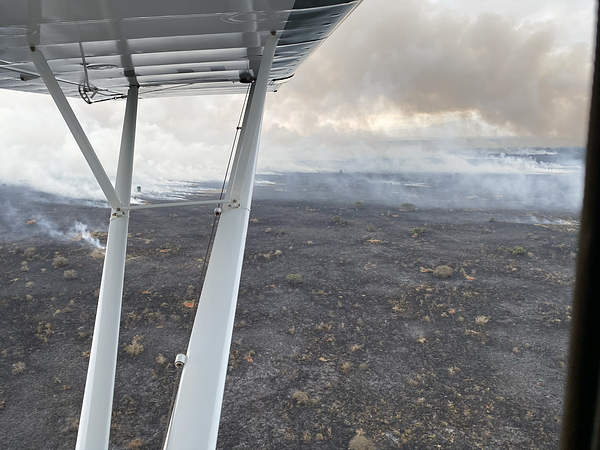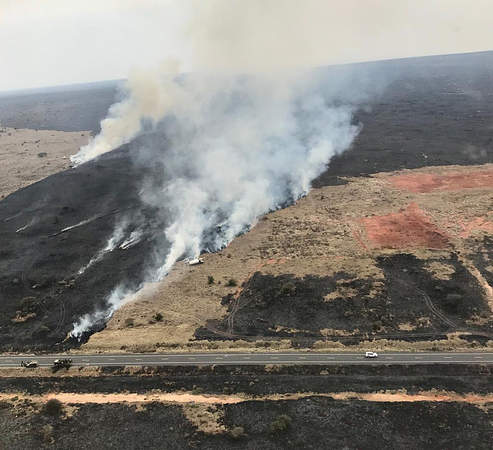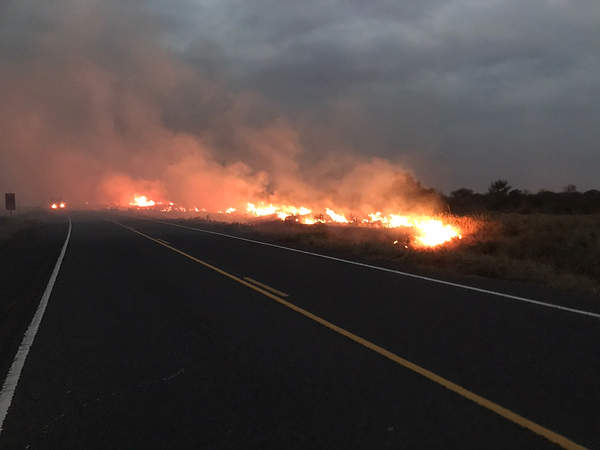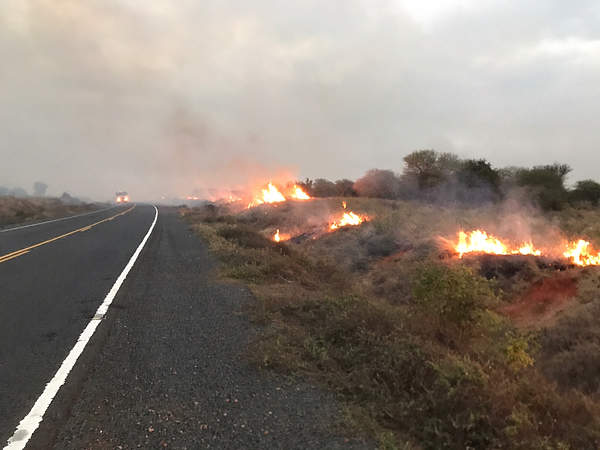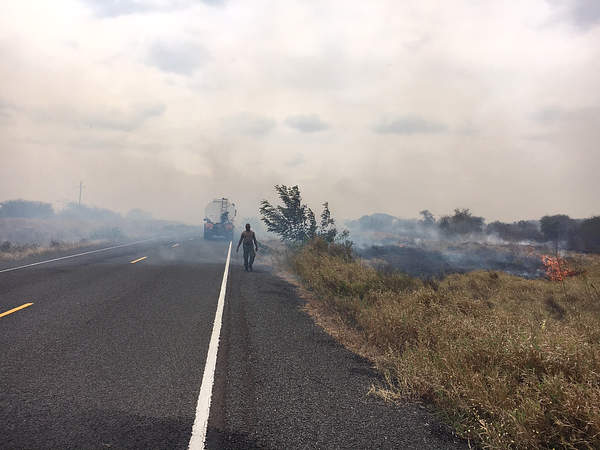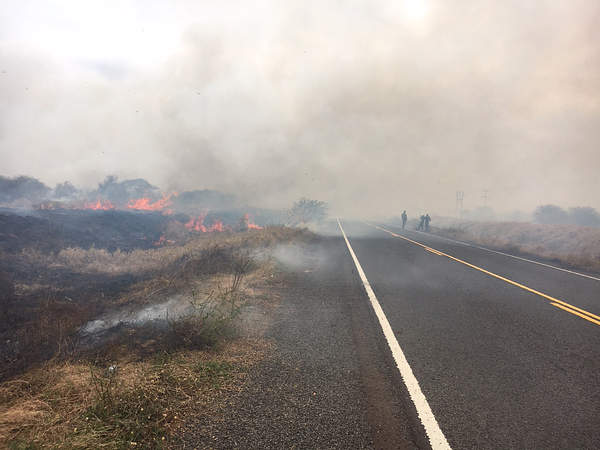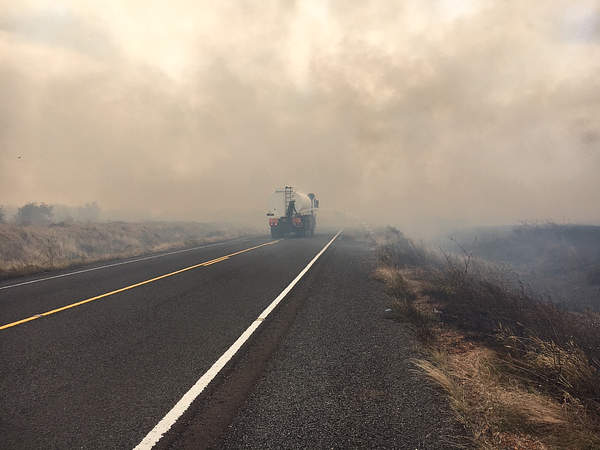After three days, extensive and exhausting firefighting efforts finally saw a sweeping bushfire in Tsavo West extinguished on Saturday morning.
The fire started on Wednesday and from that point on, the SWT and numerous other stakeholders worked tirelessly to support KWS efforts to fight the bushfire that raged in the southern area of Tsavo West National Park. After plentiful rains last year and early this year the now tinder dry sweeping grass plains of southern Tsavo West were always going to be vulnerable. The fire started out side the Park but with strong prevailing winds was swept into Tsavo West before it could be brought under control.
Many organisations were involved in the ultimately successful efforts, with the fire finally put out three days later. The Sheldrick Trust directed three of our water bowsers and teams of our staff to the fire line, where they worked for long days and nights, guided by our planes and helicopter, ferrying personnel to hotspots and providing eyes in the sky to help KWS coordinate the ground response. Working in relay, our pilots flew long shifts before being tagged out by our next pilot, with more than 35 hours flight time in extremely turbulent conditions dedicated to the effort.

There was false hope on Thursday night, when the efforts by teams on the ground, looked to have successfully tamed the fire that by now had consumed grasslands covering an area of more than 103,300 acres: that’s more than three and half times the size of Nairobi National Park. Sadly, the wind then picked up and changed direction, refuelling the flames.
Despite being dead on their feet there was no room for let up and wavering resolve of many teams, including the Kenya Wildlife Service, Sheldrick Wildlife Trust, National Youth Service, Finch Hatton Lodge, Taita Sisal Estate, Wildlife Works and others eventually paid off, with the fire was finally put out on Saturday morning. Everyone involved worked relentlessly throughout, conscious that every minute the fire burned, small mammals, reptiles and insects were losing their lives. We applaud all those who gave their all to extinguish the flames, preserve key habitat and save animal lives.

As this Tsavo West fire raged, a second fire on the Chyulu Hills, which started on Thursday was thankfully brought under control, thanks in no small part to the use of our helicopter with its Bambi bucket, flying a total of 22 circuits over the fire dropping 18,000 litres of water to help douse the flames enough for the ground teams to approach to fight the fire. The Chyulu fire was fought by KWS with the help of SWT and Big Life ground teams.
The combination of long rains earlier in the year, which saw grasses grow tall, strong winds and inaccessible areas have made this a high fire risk period in Tsavo, with five serious fires now tackled in the last two months.
We can, unfortunately, expect more fires in the coming months and the SWT, with your help, is ready to respond when and where needed, with our teams who have been trained in firefighting.
